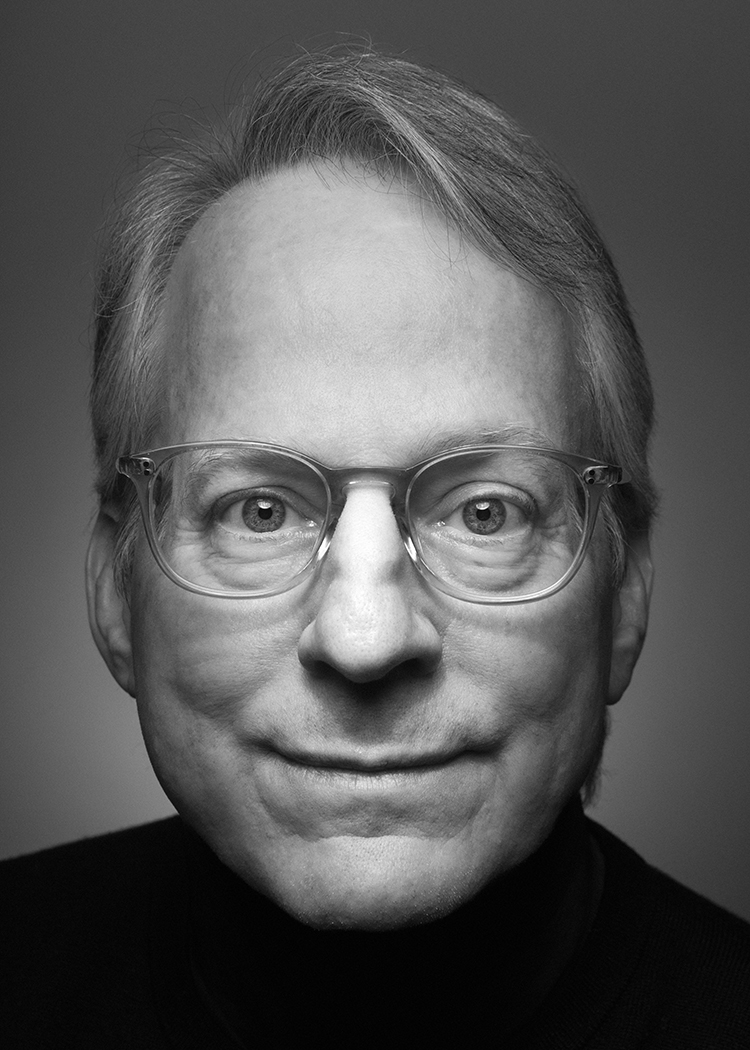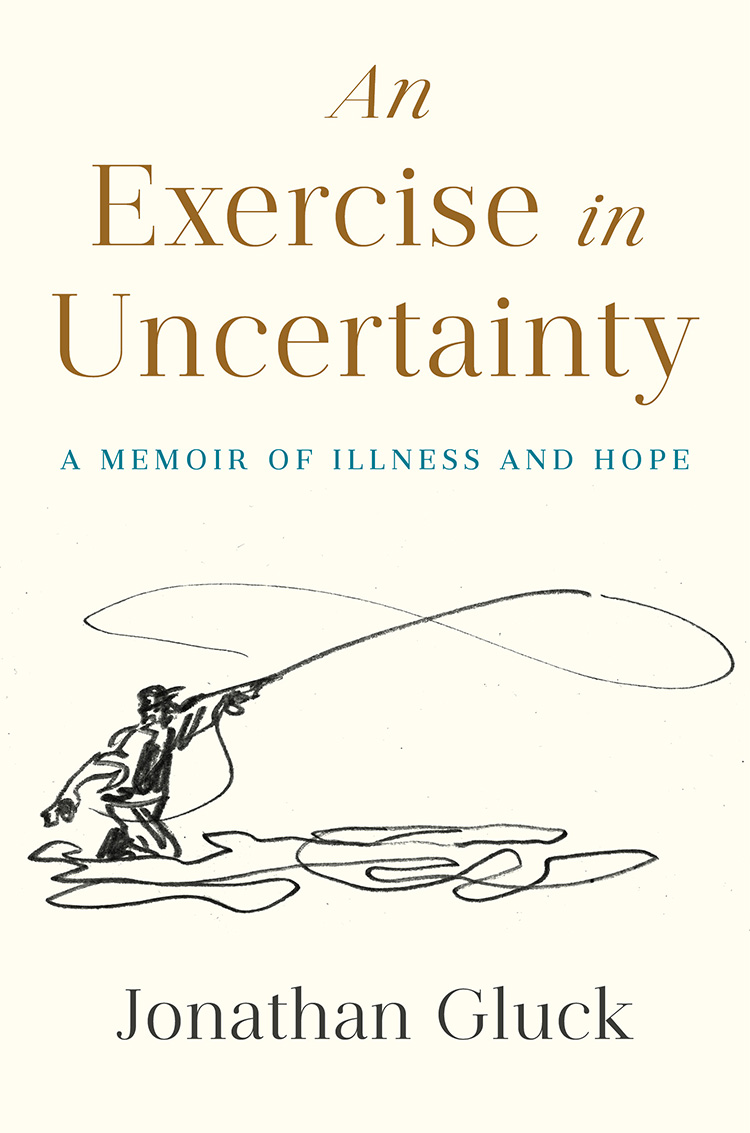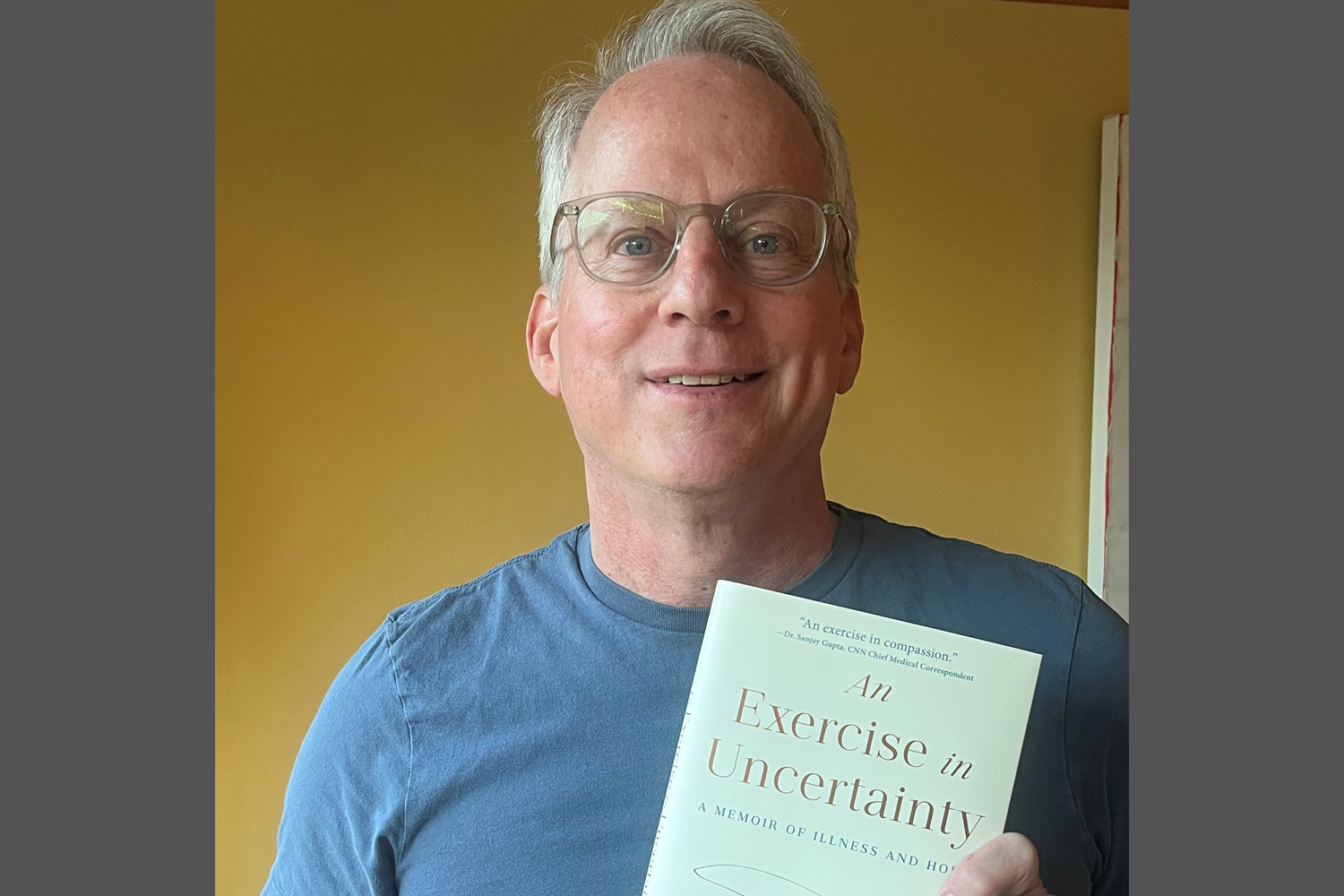SINCE HE WAS DIAGNOSED with multiple myeloma, Jonathan Gluck has received targeted therapies and multiple rounds of radiation. He’s participated in a clinical trial and benefited from newly approved treatments. He has had complete remissions where signs of the cancer were not detectable, sometimes for years, and has had multiple relapses. Multiple myeloma, a form of blood cancer that starts in the bone marrow, is incurable, and for more than 20 years, Gluck has lived with the questions that come with a diagnosis: What is the next treatment? Will it work? What are the side effects? When will the cancer come back?
A magazine editor and journalist, Gluck wrote about his experiences with cancer for New York Magazine in 2007. Back then, he brushed off suggestions to write a book. However, in 2023, as he marked 20 years from his diagnosis, he returned to the idea. “I realized the 20th anniversary would give me a nice ending point,” says Gluck. “I’m not cured, and I’m not dead. Those are the two most natural endpoints, but I don’t have either one of those at my disposal. So I realized the anniversary would give me an ending, artificial in some sense, but a good place to stop the story, at least.”

Jonathan Gluck Photo by Jacob Moscovitch
An Exercise in Uncertainty, which was published in June 2025, covers the long arc of Gluck’s time in and out of treatment and includes chapters exploring the history of different therapies that have improved survival in multiple myeloma. He also chronicles the difficulty of living with prolonged uncertainty that comes with living for decades with an incurable cancer. (Gluck is currently in remission after receiving CAR-T cell therapy in 2023.) He spoke to Cancer Today about the lessons he has learned.
CT: What has it been like living with this uncertainty, and what ways have you found to cope with it?
GLUCK: I did quite a bit of research on this subject, and it was fascinating. People hate uncertainty. Humans are not good at tolerating it, and it’s really upsetting to us.
Apparently, there aren’t great ways of dealing with it. Some of the researchers I spoke to talked about things that can help, things like simple distractions, trying not to get in a mental loop where you’re thinking nonstop about all the bad things that can happen, and trying to do things that bring you into the zone or the flow state.
One of the researchers spoke about “predemption,” or preemptive thinking about what might be redeeming about what is happening to you. If you were waiting for test results, you might imagine: If the worst were to happen, what good might come of that? Some of the cancer survivors and patients talked about how their experience provided an opportunity to show their children resilience or teach their children about optimism.
CT: Your doctors recommended starting with less intense therapies and holding off on chemotherapy. Was it difficult as a patient to accept the idea of waiting to treat the cancer?
GLUCK: I’ve been very fortunate to be treated by some extremely brilliant and caring doctors. At the very beginning, when one of my doctors said we’re just going to go slow here, and we’re going to start with this relatively isolated treatment, my initial thought was, “No! I want you to go full force. I want this stuff out of me. I don’t want to have one cell’s worth of cancer in my body.”
One person in the U.S. is diagnosed with a blood cancer every three minutes. Some of these patients will finish treatment with no signs of cancer and move on with their lives, But like Jonathan Gluck, many people with blood cancer will often cycle through remission, relapse and treatment. To learn more about how treatments have improved outcomes in blood cancers, such as chronic leukemia and multiple myeloma, read Living With Chronic Blood Cancer, which first appeared in the fall 2023 print issue.
The doctor explained, of course, why that was a terrible idea. He really saw around the corner and down the road to how important it was going to be to treat me with the minimal effective treatment at each stage so he could keep as many arrows in his quiver, so to speak, with the hope that I could live as many years as possible and with as high a quality of life as possible. Once I saw how I was able, especially in the earlier years, to more or less go back to my normal life pretty quickly, I started to see the wisdom in that.
CT: What role has research played in your treatment over the years?
GLUCK: It’s almost a miracle, and I’ve been incredibly fortunate, timing wise.
When I was first diagnosed, the first oncologist I saw told me something to the effect of, “Obviously I’m sure you’re not feeling terribly lucky,” but he said there is some good news in the sense that there are a lot of new drugs in the pipeline for this cancer. I thought he was just trying to be positive and give me a ray of hope, but it turned out he was entirely correct.
Many treatments have been developed for multiple myeloma. Some of them were approved less than a year prior to my needing them. The timing was almost uncanny.
I’ve been the beneficiary of an incredible amount of research and brilliant scientists who have developed these mind-blowingly futuristic kinds of treatments, and plain and simple, I wouldn’t be here without them.
CT: Your doctors recommended you stop high-impact activities like running, after radiation treatment. What other ways did you find to get physical activity?
GLUCK: I took up swimming. I ride the stationary bike in the gym, and I did yoga for a while. All of those things turned out to be fun in their own right.

I also took up fly fishing, a little bit for the physical activity but really for the mental peace of mind it offers me. I find—and research bears this out as I learned through my reporting—anything you can do that is deeply absorbing, that brings you into the zone or the flow state, can crowd out all your other thoughts. Just doing something that requires all your attention is really therapeutic.
So I became a very passionate fly fisherman. It’s a sport that requires all of your attention. You’re also often in a beautiful place, and that alone is a nice distraction and brings on positive feelings.
I’m not a big fan of the term self-care—it’s an overused phrase these days—but I deeply believe that if you’re facing a physical challenge as serious as cancer, you’ve got to look for every opportunity you can to maximize your happiness and your physical and mental well-being. Just because one door closes that way doesn’t mean another door can’t open. I’m not terrific at it, but I’ve tried, to the best of my ability, to find those new doors.
This interview has been edited and condensed for clarity.
Cancer Today magazine is free to cancer patients, survivors and caregivers who live in the U.S. Subscribe here to receive four issues per year.





